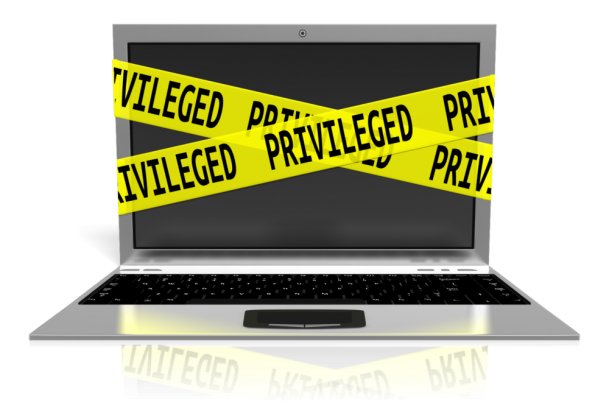

This article has been written by Sushant Biswakarma , a student from Symbiosis Law School, Noida. It discusses privileged communications that cannot be compelled to be disclosed while adducing evidence.
Table of Contents
Evidence is an essential part of a trial as it is used to establish any relevant fact and reach a conclusion. Evidence can be in many forms; witness testimony is one of them. A witness can testify based on any event they have seen or any communication they have heard or been a part of.
However, some conversations do not need to be disclosed, even if required during a trial. Such conversations are known as privileged communications. These communications can be privileged because of personal or professional reasons.

The communications between a husband and a wife have been given the status of privileged communication under Section 122 of the Evidence Act. It states that a married person:
In the case of S.J Choudhary v. The State , the Court held that compelling spouses to disclose their private communications is far worse than not getting any information at all. Therefore, such communications must be privileged.
The idea behind this privilege is that if testimonies are accepted from private communications between spouses, such testimonies have the power to destroy household peace among families and create a domestic broil. It will hamper the mutual trust and confidence between the spouses and weaken the marital bond.
Under this section, it is irrelevant whether the communication was sensitive or confidential in nature or not. Any conversation or communication between a husband and wife is privileged no matter what the means of communicating was. The same was held in the case of Emperor v. Ramachandra .
However, this rule was overruled in the case of Bhalchandra Namdeo Shinde v. the State of Maharashtra , wherein the Court laid down that Section 122 must not have any broad interpretations that expand the scope of this section.
The literal rule of interpretation must be followed if the Court has to interpret it and the scope must be kept limited because it reduces the scope of admissibility of evidence in the
Court, which could be very essential in any case.
The Court further held that communication for the purpose of this Section would refer to only verbal or written words said by a spouse and not their actions.
The wife, in this case, was called in to give testimony against her husband who was being tried for allegedly committing a murder. She was allowed to testify regarding his conduct and actions but not the communication between them.
Also, for the purpose of this Section, the communication must be made only by a spouse during a marriage for it to be privileged. Any communication made before the marriage or after its dissolution will not have this privilege.
In the case of Ram Bharosey v. The State of Uttar Pradesh , the Court laid down that mere doing of an act in the presence of the spouse can not be considered as communication between them. It is not like any domestic act will be considered as communication. Communication must be conveyed in some way; be it verbal, or non verbal.
In the instant case, the wife has seen her husband coming down from the roof and then coming out of the bathroom again with changed clothes. The wife testified regarding the same and the testimony was admissible as the act of the husband was not a communication.

The privilege provided under Section 122 is for the welfare of the marital bond shared between spouses and for protecting their families.

However, this privilege is not absolute and information can be disclosed if:
In the case of Nawab Howladar v. Emperor , a widow wanted to act as a witness and disclose communications made by her deceased husband.
The Court held that in order to be admissible as evidence – the consent for disclosure must be express and can not be implied. In case there is no representative in interest, it would be impossible to obtain consent and therefore such communication is entirely inadmissible.
A widow is not a representative in the interest of her deceased husband, and hence, cannot give her consent.
Further, the Court clarified that communications between spouses must be confidential only if it had happened during the marriage and not before marriage or after the dissolution of marriage.
Any conversation made before marriage or after its dissolution is not protected by this provision. For example:
Situation 1
Situation 2
Situation 3
Communications made between an attorney and his client is a privileged one, and no one can compel either the advocate or his client to disclose anything regarding the same.
Section 126 of the Act says that – no barrister, attorney, pleader or vakil is permitted to disclose any communication made to him by his client during the course and for the purpose of his employment without the consent of his client.
The privilege under this Section is applicable to anyone who is registered as a legal practitioner in India and falls under the aforementioned categories, which simply means an advocate.
In the case of Maneka Gandhi v. Rani Jethmalani , the Court observed that everyone has the right to a fair trial, and for obtaining such right one might need to seek help from an attorney.
People have a hard time trusting their advocates and are often scared of sharing the entire facts with them. They are under constant fear that their advocate might expose them. With the fear of being exposed in mind, they might not be able to express their problems properly and get proper legal advice.
To ensure that advocates cannot expose their clients, the conversations between them have been made privileged under this act.
In order for a conversation to be privileged under this section, the client-attorney relationship must exist when the communication took place. Any communication made with a lawyer before actually appointing him is not protected under this Section.
Similar to Spousal Privileges, this privilege is not absolute. The Act itself states that this privilege does not apply under some conditions. Communication in furtherance of an illegal purpose could be one example of the same.
In order to understand this better, let’s look at some illustrations.
Situation 1
Situation 2
Situation 3
Section 123 of The Indian Evidence Act states that no person is allowed to give any evidence that may be derived from any unpublished records of any state affairs.
Unless with the permission of the officer-in-charge or the head officer at the concerned department. Such an officer can give or withhold permissions regarding the same as he thinks fit.
In the case of Duncan v. Cammell Laird & Co. Ltd , it was held that in case such a situation arises, the Court is bound to accept the decision of the public-officer without any questions.
Further, the decision ruling out of such documents is entirely the decision of the Judge. It is the Court who is in charge of a trial and not the executive.
The phrase “Affairs of State” has not been per se described in this section or any other provision in this Act. So, it is not very practical for the judiciary to come up with a single definition of the phrase.
Therefore, the Court must determine whether any documents fall under this category, depending upon the facts and circumstances of every case. However, it is clear that only the Court has the power to decide whether any document can be classified as an ‘unpublished document of state affairs’.
Section 124 of the Evidence Act talks about official communications. It states that a public officer can not be compelled to disclose any communication made to him in official confidence if he believes that such disclosure could harm the public interests.
While Section 123 talks about unpublished documents related to affairs of the state, section 124 restrains the disclosure of all communication made in an official capacity, be it in writing or not and it is immaterial whether they relate to state affairs or not.
In the case of in re. Mantubhai Mehta , it was held that it is upon the Court to determine whether a document is a communication made to a public officer in official confidence and if the document does not deal with any affairs of the State, it may be taken up as evidence.
While determining whether the communication was made in official confidence or not, only primary evidence must be used and the same cannot be determined by secondary evidence, as laid down by the High Court of Madras in Sivasankaram Pillai v. Agali Narayana Rao .
Section 125 of the Evidence Act states that a Magistrate or a Police Officer can not be compelled to reveal as to how they got any information regarding the commission of a crime.
The section further states that a Revenue Officer can not be compelled to reveal as to how he got any information regarding the commission of any offence against the public revenue.
Situation 1
Situation 2
The intention behind giving such privilege to some communications is to protect the public. Be it regarding the safeguarding of their marriage or preventing government information from getting leaked.
In the absence of this Act, multiple classified information could have been easily leaked in the name of trial and could have compromised the security of the country.
Also, letting a husband or a wife testify against the other would make people lose trust over marital bonds and disrupt peace among families. It would start family broils, that could have the capacity to destroy families.
This Indian Evidence Act, 1872, is a wholesome act and the laws regarding privilege communications are up to par and have been legislated keeping public welfare in mind. There are separate provisions for family issues, professional issues, and issues relating to the state.
LawSikho has created a telegram group for exchanging legal knowledge, referrals and various opportunities. You can click on this link and join:
Follow us on Instagram and subscribe to our YouTube channel for more amazing legal content.
